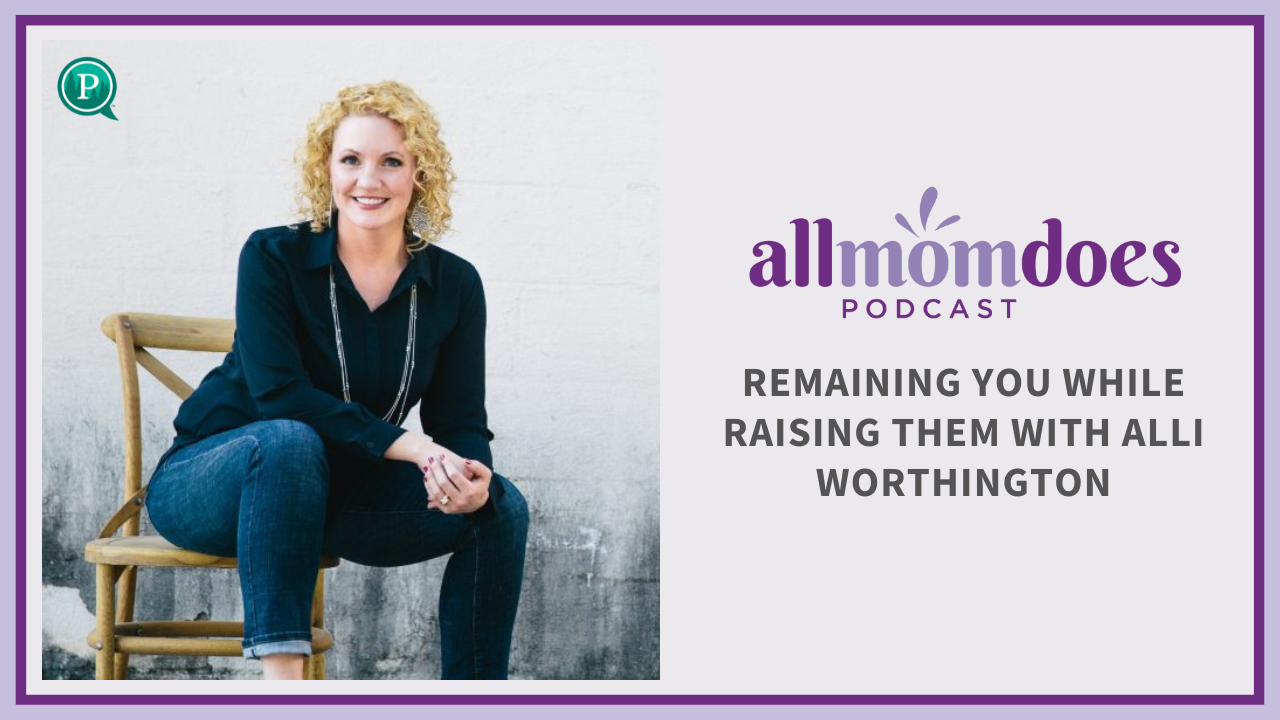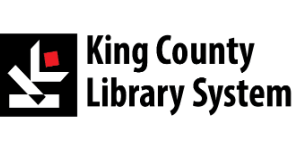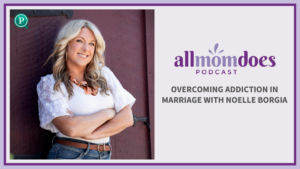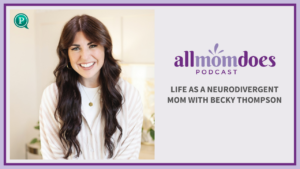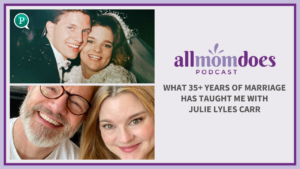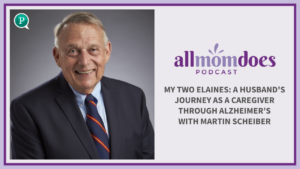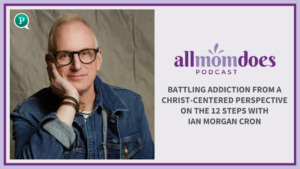Mom resentment. It can creep in when you least expect it, when you’ve been doing all the things you know to do to be a good mom. What’s happened? Business coach, author and speaker Alli Worthington joins Julie Lyles Carr on The AllMomDoes Podcast for a frank conversation about leaving room for yourself, for who you truly are in the midst of your mothering so that you and your kids get to experience the healthiest version of you.
Special thanks to the King County Library System for sponsoring the AllMomDoes Podcast!
Show Notes:
Find Alli: Online | Instagram | Facebook | Pinterest
Find Julie: Online | Instagram | Facebook | Twitter | Pinterest
AllMomDoes | Instagram | Facebook | Twitter
Transcription:
Julie Lyles Carr:
Today on the AllMomDoes Podcast, I am reunited with someone that I hung around in the virtual space, admired, wished I could be like from afar. Back in the day, we were both early mom bloggers and we just had to make a pact, because I was actually going to reveal the names that we went under our mom blog names back in the day, because, of course, you never told your real name, you never discussed your children’s names, everything was all in code, and she had a particular name and I had a particular name, but we’ve decided we’re not going to reveal that. All you need to know listener is that we knew each other back in the day when blogging was in its toddler phase. Alli Worthington, I am so thrilled to reconnect with you today.
Alli Worthington:
Well, thank you. I am thrilled to be on your show. Look at us both podcasting after all these years.
Julie Lyles Carr:
I know.
Alli Worthington:
15 years ago, we were just figuring out how do I put an embed link in a blog post, and look at us now.
Julie Lyles Carr:
I was feeling real fancy when I would customize a little bit of CSS. I thought I really had it going on. And here we are today. Here we are today. Well, Alli, tell the listener who you are, where you’re from, all that good stuff. Give them a little autobiography.
Alli Worthington:
Yes. I live outside of Nashville with my husband. My husband and I have a claim to fame that we have raised five sons, three of whom are now legally adults, two of whom are in high school. Also, have a grown stepdaughter who is off living her life on her own and happy as a clam. I am an entrepreneur, I’m a business coach, and obviously an author, and every once in a while do a little speaking.
Julie Lyles Carr:
I love it. And Alli, back in the day, back in the mom blog days, you were someone who figured out way earlier than I did that blogging had the potential to be something in the entrepreneurial space that could actually be a thing. I was busy mom’s scrapbooking in my blogs and writing and all of that, and eventually found my way to a publisher and speaking and all that kind of stuff. But you early on went, “You know what? I think there’s some potential here.” Did you always have an entrepreneurial spirit? Because you were in the thick of it with little kids at the time. For me, blogging was a way to get away and hide from my kids and journal, and that was how I justified it. You on the other hand seemed to really understand that this could be something more for your family. How did you start into that? There were no mom bloggers at that point to see how they were doing it. We were all improving. So tell me what that pivot was like for you.
Alli Worthington:
I never really had any vision for what I wanted to do career-wise. I was a stay-home mom, that’s all I ever wanted to do. I can remember telling a friend of mine in 2001, we were at a Chick-fil-A Playland, it’s funny the things that stick with you, my friend, Rachel, I told her that one day I wanted to help people on the internet. And she was like, “Oh, okay, well, if anybody can figure it out, it’s you.” And then I just put that on the shelf. And I started blogging in 2006 because I was lonely, we were moving around for my husband’s job, and every couple of years all five of the boys were born in a different city or different state, so this was just telling my story as a hobby. But in 2008, as I was pregnant with our fifth son, my husband lost his job.
We lost everything before. Everyone lost everything. In 2008, we lost our home to foreclosure. We lost everything we owned except for what fit into two little pod storage units. So the day our son turned five weeks old, we lost our home, we moved out, and we spent that summer living with my grandfather. And we would take the kids to a McDonald’s Playland every day and my husband would go apply for new jobs. And I was really, really pushing that whole time he had lost his job, “Please just don’t move us across the country again. Let us stay in Middle Tennessee,” probably causing us to run out of all of our money. But he was applying for jobs anywhere at that point because we were desperate, and I would take my laptop with some missing keys on it, just this raggedy old laptop, and Google how to start a business on the internet.
And there wasn’t a lot of ways to do that, but every night I would pray, “Lord, help us.” And I knew that He was moving me into a season where I was meant to also help support the family. So if anything else ever happened with my husband’s job again, we wouldn’t have to uproot the family and go. And because I had spent a couple of years blogging and understanding tech and all of those things, I was in a prime position to go ahead and shift into business mode from just play mode. And amazingly enough, that’s 2008, he did get a job at the end of the summer, we moved back to Middle Tennessee, and then four years later I was able to retire him thanks to my business.
Julie Lyles Carr:
That’s amazing.
Alli Worthington:
So really fun. So I look at it that what I was using as a creative outlet, the Lord always had plans for me to do more, but I sure wouldn’t done more if my back wasn’t pushed against the wall.
Julie Lyles Carr:
Desperation sometimes creates all kinds of innovation. So my blogging journey was similar in that we had moved and five weeks after we moved, your son was five weeks old when you lost a home, we left a place and I had twins five weeks later and knew no one, and really couldn’t get out hardly at all other than to go to Costco, which was really a circus when I would take all eight children to Costco. But it was interesting how it was connective and there was a community there, and for a lot of us it ended up moving beyond just a hobby or a way to stay sane into other areas, which is so fascinating looking back because at the time who could have predicted that?
Now, in your case, you have always run in a way that I think is really beautiful. You’re a person of deep faith and you run adjacent to the corporate business world and entrepreneurship. So how have you navigated those two places? Because for a lot of us today, we’re looking at where our culture is at and we want to be light in the world, we want to encourage people and inspire people, and there’s a lot of division right now in this country, and there are people who feel like they have to tamp down where their faith walks are in order to appear, quote unquote, professional, there are people who in the professional space never let on if they have a faith component to their lives. How are you able to navigate all of that in today’s business environment and how are you coaching clients to manage that?
Alli Worthington:
Well, it’s really interesting, the vast majority of my clients are from referrals. So people in the corporate world will tell other people or entrepreneurs will tell other people or people who’ve read my books. So I really don’t market business coaching services, so very often I will take on a new client and she has been referred from someone else who is also an executive or owns a business or is a doctor with a surgery center or something like that, and at first has no idea that I’m an author or I do anything. And I’ve had lots of clients through the years that aren’t believers and I don’t bring it up and they don’t bring it up. So my clients who are believers, we will talk about faith when they bring it up, but I really follow my client’s lead. And to some degree with many of the clients, I had one client tell me this at one point, and I assume it’s that way with many clients, I may be the only conversation they have with a Christian.
Julie Lyles Carr:
Right.
Alli Worthington:
And so we are talking about business, but, we tend to work together a long time, we also know each other as people, and so for me I can be that light in the world without stopping in the middle of a business coaching session to go, “Can I talk to you about Jesus?” And the way I feel about it is if they pick up a book, they’re going to get a lot of Jesus. So I’m going to be me, I’m going to serve, I’m going to do whatever I can, but there are so many other ways to go into my faith work, if this is just an open door, it’s great. And for me, I’ve realized that I’m super unusual in the space because I’m a pretty serious business coach on one end, and then I’m also a speaker and I write books and I do all those things, and I make peace with it because I feel like the Lord told me about seven years ago that my mission was to help women who were believers thrive in life.
So my job isn’t to be an evangelist. There are great evangelists out there, that’s not me. My job is to pour into the women who are already making up the body. So that may be with their businesses, but also may be with their motherhood, or it may be with entrepreneurship, or it may be overcoming something like fear or busyness. Whatever it looks like to help women in different facets of their life, that’s my job, because an emotional healthy woman who’s a believer can do great things for the kingdom, but a woman that’s a believer who has issues that could be unhealthy, emotionally unhealthy, can do a lot of damage in the world for the kingdom. But women who have strong businesses and are successful in their careers, those are the women that support the church. Just like Jesus traveled with women who supported the church biblically, I would just want to support women doing everything that God’s called them to do. And does it sometimes feel weird that I’m out here very businessy and very Jesusy? Yes, but that’s my place.
Julie Lyles Carr:
And I think we can forget or diminish at times how incredible it is when we do a good job for a client, and that speaks a level of integrity and caliber and character that may not necessitate at all having a Bible verse in our business signature in our emails. And at the same time, if we do a shoddy job, if we half show up, if we make a lot of excuses, but we’re trying to, quote unquote, evangelize, it can do a lot of damage exactly to what you’re saying.
Now let’s make that shift over to motherhood. So here you were, you were being a mom full-time, your back gets up against the wall, you launch into more of an entrepreneurial space, and you’re doing the things to help support your family. Did that mess with your identity a bit in terms of feeling like, oh man, is my attention split? I feel like I’m doing this out of necessity and it’s gaining some legs, this is a good thing, but at the same time, I’m a mom, and your boys were little at the time, to all these little boys. How did you handle that place from going from I’m full-time stay at home mom focused to being someone in a position who was having to navigate both sides of that equation?
Alli Worthington:
I had lots of mom guilt that would come and go, of course. When my youngest was about two, I would work on the couch, I got a much nicer laptop at that point, it had all the keys on it if you know what I’m saying?
Julie Lyles Carr:
All the keys, wow.
Alli Worthington:
All the keys. I’m not trying to brag but that’s how I was living two years later. And he would come up to me and he’d slap my computer closed and go, “No work, mommy. No work.” So there were those moments. I had a preschool teacher, I was picking up one of my boys and she said, “I know you don’t look in Joey’s folder every night, but I need you to look in there.” And I was like, “Oh, forget it. I’m a terrible mom. What am I doing with this business?” But the thing was I didn’t have the financial privilege to stop.
So I may have had mom guilt, but I knew I had to keep going and I knew I was called to do this. So the guilt I had, it stayed momentary. I remember my oldest when he was in middle school, he said, “I really wish you were all the other moms and you were at everything.” And I said, “I’m sorry, buddy. I can’t be like the other moms.” And it was a few years later, he goes, “I really appreciate you’re not like the other moms.” And I was like, “Well, how your tune has changed.” I didn’t say anything. And then I had one of my middle boys, he came into my office, this was about five years ago, and I travel a lot, I speak on the weekends, and some years I’ve had up to 15 events in a year where I’ve been speaking or I’ve done some consulting, and he’s in my office chitchatting about something and he referred to me as a stay-home mom.
And I was like, “Buddy, do you think I’m a stay home mom?” And he goes, “Yeah.” I said, “You’re standing in my office. I just got back in town yesterday. How’s that a stay home mom?” And he goes, “You’re always here for us even when you’re not here, but mostly you’re here.” And I was like, “Huh. All that time beating myself up, feeling terrible, the kids are just fine.” Even if in the moment it’s no work mommy or I wish you were like other moms and we’re letting all the kids read to you and make snacks all the time at school, which honestly I wouldn’t have enjoyed anyway even if I wasn’t working. At the end of the day, there’s enough grace for all of us
Julie Lyles Carr:
And to what God’s called you to and for your story to look different than other families, because there is no one formula for successful family life. Alli, I feel like, and maybe I’ve got this wrong, but I for many years was also a stay-at-home mom, but always had some side gig going to support my husband’s business while he was trying to get that going, and then of course we have a million children. And in all of that, what has been interesting to me, my mom would come visit me, she had been a stay-at-home mom, she would launch into our world, and this is back when I had four, maybe six of the kids, and she would do all the running around with me and all of the things and we would get to the end of the day and she would say, “I don’t know how you younger mothers are doing this today. We did not have the same kind of schedules.”
And I’d say, “Well, mom, there’s four of the kids, there’s six of the kids.” And she’s like, “I know that. I can do math. That’s not the issue.” She was very concerned about how much we were expecting of moms in our world today that felt different to her than when she was in her primary years of raising kids and was home. Do you feel like we have escalated the expectations that we have on moms, whether they’re stay at home moms or they’re also entrepreneurial or they’re in the corporate world? What do you see in all of that and how things are today as contrasted with maybe 40, 50 years ago?
Alli Worthington:
I’m a huge data nerd, so I had so much fun reading all of the research about motherhood, because I don’t know if you’ve noticed, but there’s a lot of opinion on the internet.
Julie Lyles Carr:
Just a tiny bit, just a slash.
Alli Worthington:
Just a little bit. Not just opinion from our families, but there’s opinion on the internet, and so I really wanted everything that I was sharing to be backed by research too, to say we’ve studied thousands of families, thousands of kids over decades, here’s what we find. And one of the most interesting things I found is that parents are spending way more time actively parenting their children than they did 50 years ago.
Julie Lyles Carr:
Wow.
Alli Worthington:
I think that we have this idea that moms 50 years ago were sitting around teaching their kids Latin and just French braiding their hair all day. Mom’s 50 years ago were just trying to get the chores done and locking the door and saying, “Don’t come back until the streetlight comes on.”
Julie Lyles Carr:
Oh, yeah.
Alli Worthington:
And so we put these expectations on ourselves, I think they’re cultural, I think social media is driving a ton of it to go, “Well, I need to make sure that I’m doing everything right, I’m going to make sure I do these eight things, and I have two extracurriculars. And sure I don’t have any time for myself and I’m exhausted and maybe getting a little bit bitter, but at least I’m keeping everybody busy.” We are running ourselves ragged when if you look at this model that we think we’re holding ourselves up to, it was never there to begin with.
Julie Lyles Carr:
We’re trying to hold ourselves to a standard that didn’t exist. Whatever that beautific thing is that we’ve put out there, it didn’t exist. Alli, it makes me think about because I think there’s been a lot of messaging both in the generation when you and I were first becoming moms and trying to figure out our way all the way to this newest generation of moms, what’s interesting in it is because there’s this expectation that we should be so completely saturated in motherhood that some of us are starting to come into that final lap of those most active years of mothering, and we’re not exactly sure who we even are anymore at the end of that, because we have been so busy meeting need after need, after need, after need, whether that is on the home front or in the business space, and so I think that I’m seeing within myself, I’m seeing it in a lot of our peers, it’s not exactly what I would call empty nest syndrome. It’s not this longing.
I got to tell you, I feel like I left it all on the floor in terms of parenting. I don’t have this thing of, oh, gosh, if they were only little once more, I’m like, “Don’t let the door hit you on the way to your independent job and apartment. Bye, love you.” I’m crazy about my kids, but I have to say the way that I did it that was just so pedal to the metal and all the things, I did mine, I ran mine. I feel, okay, here we are. And yet when you have that sense, which is great, but when you have that sense to understand who you are anymore on the other side of that because you haven’t had time to really keep yourself in any kind of context with what it goes with identity and who you’re supposed to be when you pop out the other side of this kid raising thing, I love that you’ve been exploring this.
In your new project, your new book called Remaining You While Raising Them: the Secret Art of Confident Motherhood, what a title. There is so much going on. I love it. So talk to me about your journey to wanting to write on this, because you’ve given us the data, today the numbers just don’t lie, we are spending so much more time parenting, how on earth are we supposed to remain in any kind of context an idea of who we are as women apart from all of that?
Alli Worthington:
I’ll tell you, I never wanted to write about any sort of thing with family, because I felt like if you write about your marriage, you’re going to get divorced, and if you write about anything with parenting, one of your children’s going to go to prison. That was my mind as a writer. But through the years, people just kept asking me, and I was serving on the teaching team at a church a few years ago and for Mother’s Day they said, “Can you just be Alli for Mother’s Day, be the Alli we know behind the scenes of don’t do the normal Mother’s Day thing?” And I went, “Okay, can I use memes in the message?” They were like, “Do anything you want, just make it interesting.” And I said, “Okay.” So I did this Mother’s Day message that was very data-based of what really matters, what doesn’t, what culturally women have been believing, but how to find ourselves again.
And everybody went, yes, more of this, please. And I went, “All right, Lord, it’s time to write the book.” And with three of them legally adults and my stepdaughter adult, and no one’s in prison yet, I thought, well, I guess I have a little bit to offer. So I brought in a team of mental health experts to vet everything that I was saying, because I have the stories, I have the experience, like you have, you could write a book on mothering, but I wanted to make sure for this project I had mental health experts going, “Yes, this is the right thing to say, or this is what women need, or here’s what we’re seeing from our clients.” That combined with the data, because, again, see if you’ve noticed this, there are a lot of people online who aren’t just opinionated, but they’re opinionated and convincing, and they’re convincing people of things that just aren’t true.
And there are entire business models built on making women feel bad and not enough. When I quizzed my audience, I sent out a survey to say, “Hey, what was the last book on mothering you read?” And the vast majority, over 1,000 women, could not name a book on mothering, but they gave a parenting book and they left comments like, “I stopped halfway through because it made me feel terrible or I wish I had never read it because I felt so bad.” And it was when I read those comments, that’s when I knew for sure it was time to tackle this, because women deserve something better. When I quizzed women to find out, with mom guilt, what’s the biggest cause of mom guilt? It wasn’t our husbands, it wasn’t ourselves, it wasn’t our mother-in-law. The biggest individual trigger for mom guilt in a day for women is social media.
And a lot of it is the business model. And as a business coach, I’m not cracking on anyone’s business model, but we do need to be wise women and recognize there are lots of influencer business models based on projecting perfection with your kids, with your family.
Julie Lyles Carr:
Your pantry.
Alli Worthington:
Yeah, and their life is looking perfect and even their dog is smiling, and you look around and your kids are crazy or you’re going through an empty nest and your dog is throwing up on the carpet, you can’t help but feel like everybody else got this secret to mothering that I don’t know. So I think just arming ourselves with wisdom, but also arming ourselves with data so we really can go, “Here’s how to invest in myself,” whether we’re in a period where we have young kids or we’re in a period where our kids are going off to college and we go, “Okay, it’s time to invest in myself again,” because the truth is once a mother, always a mother. And as I talked to moms who all their children had been out of the house for a long time, I kept hearing this same type of comment over and over again where they said, “I wish I had known when they were younger, that when they moved out of the house, the way to get them back home is for me to be as healthy as I could be.”
And I was like, “Oh my goodness, you’re right, when they’re gone we lure them back in by being emotionally healthy and making them want to come back.” Because guilting our kids only works for so long. So I really wanted to tackle this from an emotional health perspective, and I consider emotional health, spiritual health, mental health, and relational health to go whether we’re pregnant, we’re young moms, or we’re sending our kids off to school, the last kid off to school, what does it look like for me to invest in my emotional health where the natural overflow of that will be healthier and happier kids and family, which is a completely different way of thinking because we’ve all been told you have to do more, you have to be more, you have to be perfect, and here’s all the ways you’re screwing your kids up, when the research says it’s not really that way.
Julie Lyles Carr:
Alli, I love that to me it feels like you’re making a distinction. Yes, there’s self-care, and we hear self-care, self-care, self-care, but the differentiator I hear with you is self investment, which is a different perspective and hits me differently than thinking mama needs a pedicure. So what are some investments we should be making in ourselves no matter the ages of our kids so that we can make sure we are staying as best we can in a healthy frame so that when our kids are growing up, are launching, it gives us the margin to have more patients, it gives us the margin to model for them a better way? What are some of the top things that you think we miss but that we need to be investing in ourselves?
Alli Worthington:
Here’s a couple of things just off the top of my head. Research shows, this is really interesting, that of course our marriages and our families give us deep joy and satisfaction, but it is our friendships with other women that are our happiest relationships. So women who have strong social networks, just two or three friends on average, when their child is two, children actually have a greater development, cognitive development at the age of two from women, from when their moms have a strong social network, because think about it, things go wrong and women are supportive. And as your kids get older and life moves on, what happens is, in the words of Eric Barker, the 30s are the decade where friendships go to die. So we’re busy with kids, we’re raising kids, we’re working, we’re working at home, we’re stay home mom, and all of our time is used up, but if we let our friendships die, that huge happiness point in our life, we’re losing that.
So a big part of a woman’s emotional health is just having a couple of close friends, healthy friends who are adding to her life. And that’s a big thing that I go into, what are the green flags and what are the red flags with friendships, because I have heard quite a bit recently the message that whoever’s in your space you’re just meant to be friends with. And I feel like that’s very damaging and potentially hurtful to women. We’re called to love other people and be good to other people, but that doesn’t mean other people get to be close in our lives. Sometimes, like for us, we’re moving around all the time, we found a lot of friends on the internet that we’re still close friends with today.
Julie Lyles Carr:
Absolutely.
Alli Worthington:
And for women, you want to be discerning, and you want to really look for those great friendships that are going to build up your life, whether your kids are two or 22, it really, really matters. A second thing, this is something that’s more internal, is getting into the practice of asking ourselves what we need. So when I’m working with clients, for instance, the question I have thrown people for a loop with is what do you need? And almost every woman goes, “I don’t know what I need,” because we’re so out of tune with our own needs. From the moment we find out we’re going to be a mom, whether we’re pregnant or adoption or marriage, our focus leaves us and completely goes to the child, which when it’s a baby, that’s good, but as the child gets older, we’ve got to get some of that focus back. So just tackling this on the day to day, you can change this question to what do I need right now?
And for some moms it’s lunch with a friend. For some moms it’s a housekeeper. For some moms it is a little more sleep, it’s a snack, it is taking my vitamins, it’s going for a walk every day, it’s I need to be left alone for 15 minutes so I can use the bathroom and read a chapter in a book, whatever it is. But I think it’s really important for us as women to model that to the next generation, because I am a child of God, I am worthy of care, and when we model that in front of our children, they understand that that is a good thing. We are teaching our daughters that they too are worthy of care and you can and should meet your own needs in a way.
We don’t want to raise daughters who are just victims to the world. I’m not going to take care of myself. I’m only going to do X, Y, or Z. And we’re teaching our sons that women are to be respected and valued and have needs and it’s good to have needs. So I think that we’ve all heard more is caught than taught. So if that is true, we want to make sure that we’re modeling that we too are children of God worthy of care just like our children are too.
Julie Lyles Carr:
Absolutely. I love that you have pointed out, because I think it’s so true, when you shout into a group of women what do they need? A lot of times you just hear the echo of your own voice, because we haven’t been given, if you will, permission to say what we need. And yet in that way we can’t wait for permission anymore. We’ve got to step on out there. One of the things I started doing a few years ago, and I don’t know where this came from, but boy was it just really important, particularly in the thick of when some of the kids were still here at the house, was I would do something that I would call mamaing myself, I would mama myself. I would run myself a really nice bath and actually light the really nice candle. And I know that can veer into more of what we talk about with self-care, but there was something more important going on there, which was the very beginning stages of starting to ask myself what I needed and what would make me feel loved and what would make me feel valuable.
And for that to begin as an inside job with going I think I’m going to go get in the tub, and I think God’s cool with that, and I don’t think I need to feel bad about that, and what would make this feel even a little bit lovelier? And we’re not talking about major financial outlay, Alli, we’re just talking about taking a hot bath, but doing it in a way that someone was caring for me, that someone was me, but it was helping me learn that language again, because somehow through my faith upbringing, I really thought that if it was not completely altruistic and on the very edge of martyrdom, then I was somehow blowing it, somehow that was sinful to approach motherhood from more of that perspective.
How do we overcome some of us who are fighting that sense of if we do, if you will, put on our own oxygen mask before we’re putting it on other people and we feel bad, how do we get past that sense? We can know pragmatically that’s the way in order to keep ourselves amped up to be able to move forward, but how do we get past the emotion at times that we can almost feel like we’re doing something wrong if we put our need first?
Alli Worthington:
Let me tell you a quick story about my aunt, Shirley. This I think is more impactful than laying out a three-step plan. The plans are all in the book. When I was a little girl, I remember going to big holiday sessions at my Aunt Shirley’s house, and she would cook for days before people would arrive, she and other women in the family. I knew she cooked for days because she told us that she cooked for days. It was a big deal. But when I was eight, I didn’t have the understanding and life experience or language to put together what was happening. I just knew it wasn’t good. I knew that Aunt Shirley wasn’t happy and didn’t enjoy the holiday, and I knew I didn’t have the language for it, but I knew she was bitter. And I remember thinking as an eight-year-old girl, I don’t know why she’s cooking all this food if she’s just going to be bitter about it.
But Aunt Shirley, I found out later from talking to relatives after she passed, she didn’t feel like she had permission to raise her hand and go, “Hey, I don’t want to do all this alone. It’s important to me that we all have some food, but everybody needs to bring a dish or else I’m going to be miserable by the time we get to the holiday and I’m not going to be able to enjoy it and I’m going to be mad at everyone.” But she sacrificed because she thought that was her role, but in doing that, she exhausted herself and no one could be around her without being like, “Why is she so mad and bitter?” And so I took that message in my soul as an eight-year-old and went, “I don’t know what this is, but I don’t want it when I’m older.”
And so that stuck with me now almost 40 years since I was a little girl. And when that message in my head creeps up of you should be sacrificing more, you should be doing more, you shouldn’t have needs, I remember my Aunt Shirley who grew up in a time when she didn’t feel like she had a voice and she didn’t feel like she could raise her hand and go, “Hey, this isn’t fun for me. Let’s do it this way.” And it’s not selfish to take care of ourselves because if we don’t take care of ourselves, our families feel it. There’s no way you can let yourself wither on the vine and not take care of your emotional health, spiritual, mental health without affecting your family.
Julie Lyles Carr:
[inaudible].
Alli Worthington:
Because I’m a big believer that motherhood is who you are and not what you do, and that at least when our children are in our house, our children are not going to be emotionally healthier than we are. We can’t expect our children to be emotionally healthy if we aren’t taking care of ourselves. We got to model that for them. And sometimes that means doing less and taking care of ourselves a little bit more, but our increase in peace and joy and fruits of the spirit, that’s going to affect your family for generations. We have the ability, whether our children are two or 32, to go, “My family, this may have been passed down in generations that women did X, Y, and Z, or everybody gets mad at Christmas because they have to cook…” Whatever it is, but we get to be the ones with the power of the Holy Spirit to go, “I’m breaking that cycle now and it’s not going to continue with my children.” And we have a privilege and a great responsibility to get to do it. And by far, it means doing less.
Julie Lyles Carr:
Well, Alli, I just love this, Remaining You While Raising Them: the Secret Art of Confident Motherhood. Tell the listener where they can find you, all the great resources that you have, where to get the book, all the things.
Alli Worthington:
Well, thank you so much. It is alliworthington.com, and Alli Worthington on social media, and my podcast is The Alli Worthington Show. And on my site, there’s a super fun quiz that takes about two minutes that will help every woman find her secret, God-given superpower. And of course the book is available everywhere books are sold.
Julie Lyles Carr:
Absolutely. All right. Well, Alli, thank you so much for being on today. Just a joy to get to reconnect with you. And listener, be sure to go to the show notes. Rebecca puts those together. They have all the links and transcripts of what we talked about, and I would love it if you would do me this solid, would you please go, wherever you get your podcast, give us a five star rating and review and share the link to this episode, particularly to your mom friends who may be grappling in this area, trying to figure out who they are while at the same time do all the things mothering and for their business, all the stuff, I think this will be a conversation that will really be of help, and we’re just so honored whenever you choose to share any of the episodes. Be sure to check out allmomdoes.com and on the socials, and I would love to connect with you too. I’m Julie, and I’ll see you next time on the AllMomDoes Podcast.
Follow this podcast:

